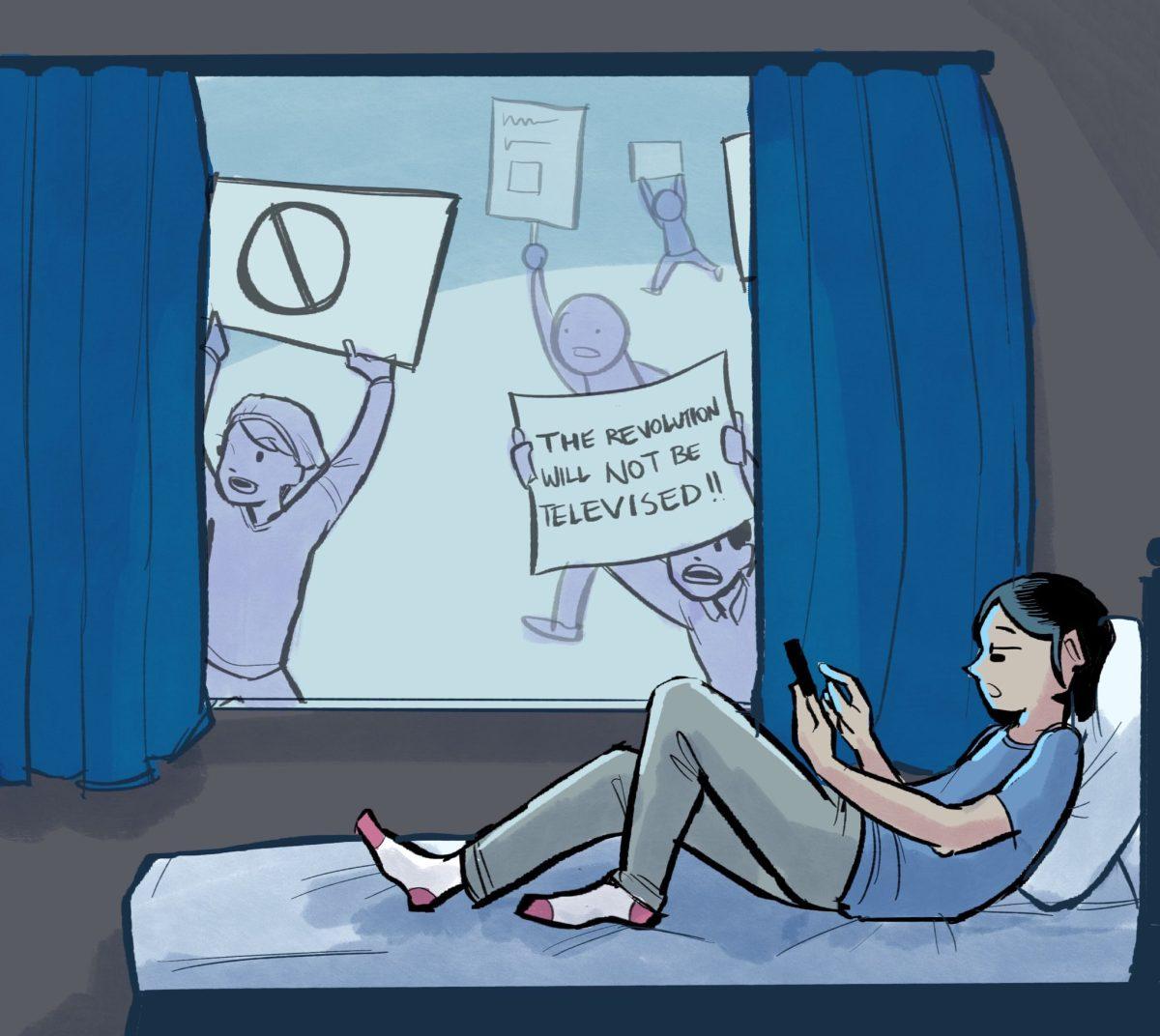“I have done my job, the rest is up to you,” my friend said after posting an article he didn’t even read on his Instagram story.
This came from someone who is extremely political online and prides himself on being well-informed. But alas, social media’s lure is uncontrollable.
It’s an enticing world filled with ignorant folks who’re trying their best to appear knowledgeable. Their methods to gain that knowledge are surface level because, heaven forbid, they have to read an article that’s more than 250 Twitter characters.
I wasn’t surprised, to say the least. This isn’t unusual. Every day you surely see a post from a person you’re following who doesn’t check the information’s source, fully read the content or try to understand it.
These “slacktivists”, or social media activists, believe their advocacies start and end with simple post reshares.
Slacktivism is defined as garnering support for a particular cause in a way that requires minimal effort, according to Merriam-Webster.
What if the article was spreading misinformation or written by someone with a history of being factually incorrect?
About 47% of young adults aged 18 to 29 get their news from Instagram, according to a Pew Research Center survey conducted Aug. 31 through Sept. 7, 2020.
Pew Research conducts data-driven research to inform the general public on a variety of issues including demographics and social media engagement, according to its website.
Internet users spent about 145 minutes a day on social media in 2020, according to a Sept. 7 Statista article, a company that provides data on consumers.
It feels as though activism can’t exist without social media because of how much time is spent online. If you aren’t posting about it, did it really happen?
On June 2, 2020 you may remember your Instagram feed being filled with black squares. In the wake of the Black Lives Matter protests and amid a pandemic, people turned to social media for activism. Posting black squares on Instagram was an easy way to show that you cared and it didn’t require much effort.
Several people used the #BlackLivesMatter and #BlackoutTuesday hashtags to show their support, however it did more harm than good because Instagram was flooded by a sea of black squares and people pretending to be advocates.
Unfortunately, performative activism isn’t new.
In the past few years, advocacy accounts including “So.Informed” and “The Slacktivists” have filled everyone’s feed. In ten slides or less, young adults are getting briefed on several complex issues including immigration and abortion rights.
The activism performance has become so prevalent that CBS announced a show called “The Activist” where activists compete to see who’s the best representative for their cause. The metrics for success are based on social media engagement, according to a Sept. 16 NPR article.
The show makes it seem that social media dictates whether movements can be more or less better than another.
What about the people doing ground work every day and those who drive the movements, even though many aren’t broadcasting it for social media users to see?
Social media is a tool for activism and doesn’t actually equate to reform.
While Instagram accounts can share sources at the end of posts, many users don’t take the time to actually read through to the end or do the necessary work outside of social media: including fundraising, protesting and being informed.
Instead, young adults trust these accounts to inform them without calling into question the information’s accuracy.
The “So you want to talk about” Instagram account gained thousands of followers while posting graphics that break down complex topics, especially those pertaining to people of color, which has about 3 million followers as of Tuesday.
The issue is, the account’s founder Jess Natale is a white woman who conveniently kept her race hidden from her followers.
Many assumed she was a person of color who had some relation to the popular book of the same name that was written by Ijeoma Oluo, a Black woman.
A white woman was profiting from the fame of a woman of color. Natale apologized in a lengthy post saying she is renaming the account to So.Informed and apologized to Oluo after receiving backlash.
Natale’s information may be well-researched and well-informed, but the lack of transparency toward nearly 3 million followers is alarmingly.
Her anonymity shielded her from liberal and conservative mobs alike.
Many people using social media accounts are often hiding behind the facade of “advocacy.”
It can be easy to reshare a post and tell yourself you’ve done something, but it’s not enough.
Advocacy social media accounts should strictly be a jumping-off point for you to go and educate yourself.
You can touch your thumb to a screen, dust off your hands and sit in the comfort of your own home, or you can attend a protest or a city council meeting, and you can have hard conversations with those around you.
Whatever you decide to do, just don’t be a slacktivist!









































